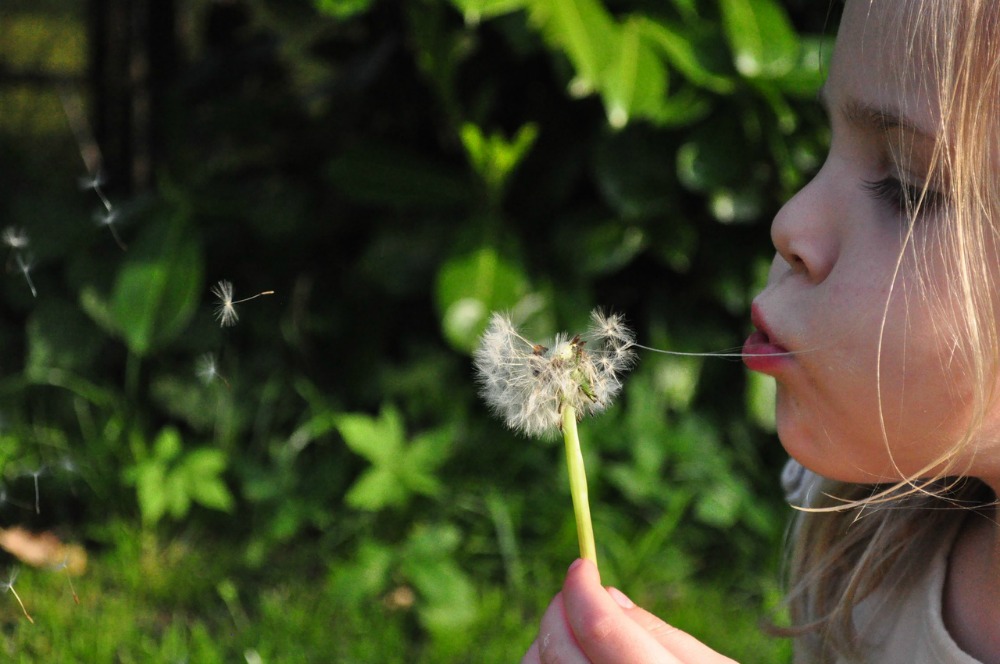Since the beginning of the school year, you’ve been concerned about your child. You’ve noticed some troubling changes. Over the summer, she was always laughing but now that she’s in school, she’s irritable and crabby. Her homework is taking longer and longer. She’s doing soccer, karate and the dance team, so she’s busy every day after school. Even with all these activities, she’s still having a hard time falling asleep.
Your child is stressed, and you are worried about her.
Adults talk about being stressed, but we can sometimes forget that children experience stress too. Kids are worried about doing well in school and getting along with friends. They worry about their family and their pets. Kids also experience acute periods of stress, like when a loved one dies or when their parents get divorced.
How to help your child cope with stress.
As adults, we figure out ways to cope with the stress in our lives. We need to be able to teach our children to do the same. So what can you do? How can you help your child cope with stress?
-
Teach them a few quick calming strategies
When kids are experiencing stress, they need to be able to do something in the moment to calm down.
Teach these to your child so they have a few simple strategies.
• Take a deep breath.
The key to a good deep breath is to have their belly move, not their chest. Have them put one hand on their belly and one hand on their chest. When they breathe in, their stomach should be moving out. And when they breathe out, their stomach should move in. Use props to make it more fun, like bubbles, a pinwheel, or laying down with a teddy bear on their stomach.
• Imagine your favorite place.
Have your child imagine their favorite place in the world. Maybe it’s the beach, or the woods, or in a quiet spot in your home. Have them use their senses to think about this place – what do they see, hear, feel? Encourage them to stay there for a few minutes.
• Pick a number.
Sometimes it’s helpful to focus on something simple, like counting. Have them pick a number and count to it. Or they could start with a random number, like 58, and count backwards down to one. Or they could start at 100 and count backwards down by 7’s. Try a few different ways of counting to see which works best.
-
Start a dialogue about the stress
Ask one or two open-ended questions and see where that leads. One simple way to ask about their day is to ask about the roses (the good things that happened), and thorns (the bad things that happened).
They may be more reluctant to talk with you face to face, so try talking in the car instead. Ask a question or two while you’re out and about in your vehicle.
If you’re having a hard time starting a verbal conversation, try writing instead. Start a special journal just for the two of you and start a conversation about what’s going with them, and what is stressful for them.
-
Simplify your schedule
There is such pressure to go and do CONSTANTLY. That puts a lot of stress on everyone in the family. Talk with your child about their schedule. Do they still like all of their activities? Is there something they’d like to stop doing? Cutting down to one or two activities a week would reduce stress. Simplifying the schedule would have the added benefit of allowing for some down time and freedom to play, which is a great stress reliever.
-
Find good distractions
There are times when you can do something to reduce stress, like cutting back on activities. However, there are times when you can’t fix it, like when their grandmother is ill. There isn’t anything they can do, but your child may keep thinking and thinking about it, to the point of being unable to focus at school. Then it’s time to try and take their mind off that stress.
• Find something that makes them laugh.
Tell silly jokes, make up some Would You Rather questions, or do a mad libs together. The simple act of laughter can make kids feel a little bit better and reduce stress.
• Help others.
Find a place that they can volunteer. Do random acts of kindness for others. Focusing on other people can distract from their own worries.
• Play a game.
Set aside a little time and pull out your favorite board game from when you were little. Teach them how to play. What a fun way to bond and connect with your child.
-
Model healthy coping strategies
As parents, we are our children’s first teachers. They watch our behaviors and see what we do when we’re stressed out. We need to model good, healthy coping strategies too. What are your go-to coping strategies? – Do you like to go to the gym? Knit? Do a crossword puzzle?
The next time you use a coping skill, share that information with your child. Acknowledge it out loud. “I’m so stressed right now, and I just need a quick break. I’m going to knit for 10 minutes.”
There will always be stress, but it’s all about how you manage it. The earlier your child can learn healthy coping skills, the bigger their repertoire of coping skills will be. With a good set of coping strategies, they can tackle stressful situations successfully.
You and your child have been writing back and forth in a journal, and you learned that she really didn’t like soccer anymore. It’s been two weeks since she stopped, and you’ve noticed her smile is starting to come back. She seems less stressed and you aren’t so worried anymore.
About the Author: Janine Halloran
 Janine Halloran, LMHC is the Founder of Coping Skills for Kids where she provides products for parents to help their kids cope with stressful situations in healthy ways. She has been working with children, adolescents and their families for over 15 years. Janine lives in Massachusetts with her husband and their two children. When Janine isn’t working, you can find her in her garden or doing an arts and crafts project. To learn more about Coping Skills for Kids, follow on Twitter, Pinterest or Facebook.
Janine Halloran, LMHC is the Founder of Coping Skills for Kids where she provides products for parents to help their kids cope with stressful situations in healthy ways. She has been working with children, adolescents and their families for over 15 years. Janine lives in Massachusetts with her husband and their two children. When Janine isn’t working, you can find her in her garden or doing an arts and crafts project. To learn more about Coping Skills for Kids, follow on Twitter, Pinterest or Facebook.



Deep breath is really a great technique as instant solution.
great article. thank you.
Thanks for the tips. My daughter is 8 yrs. She seems stressed out. I will try the strategies to bring back the happy her.
Thank you,Jenine for sharing such an helpful article…I knew some of tips and helps my siblings with it……But you showed some new steps to…..Keep posting this kind of article more.
In general, parents’ pattern consists of three kinds.
First, authoritarian. The authoritarian parents are not giving children the freedom and force the children to meet the demands of their parents.
Second, permissive. Permissive parents free their children whatever they want even though a child is not able to make the right decision and let the child’s fault.
Third, authoritative. authoritative parents clearly define the consequences of any action taken, they do not curb children also did not release them, but continued to pay attention to the child and tried to form independent child. This authoritative pattern is best for the child’s personality. Stress can happen to a child when he was not able to meet the demands of their parents or because he had experienced of bad consequences due to improper decision.
Thanks, Janine! My nine-year-old granddaughter is cranky, critical and bored. Her parents are divorced and there is a new third party living with them. She is also huge for her age, slightly gifted and somewhat socially awkward. Your concrete suggestions may be helpful and remind me to be patient (and that has become really difficult. Best to you in your work
I’m not a parent but I am 10 years old I’m trying to cope with my stress I can’t work up enough confidence to talk to anyone so I disided to do some research and I found this very helpful I will try to remember those stratigies thank you.?
Morgan it’s so great that you have tried to find ways to deal with your stress. I’m so pleased you found this site and that it’s been helpful for you. It means a lot to me that you let me know. Stress is very normal, even though it feels awful, so feeling overwhelmed sometimes doesn’t mean there is anything wrong with you. In fact, you’re pretty wonderful being able to realise what you are feeling and actively looking for ways to deal with it. If you can, try to speak with an adult in your life who cares about you. Maybe a teacher or counsellor at your school or a parent, relative or family friend? Every adult in your life would have experienced stress before, and the people who care about you would love that you have trusted them enough to speak with them about what you are feeling. Otherwise, another really great way to help with stress is with something called mindfulness. It’s used in a lot of schools now because it’s such a healthy thing to do and brains love it! Here is some information about it, and some ways to do it https://www.heysigmund.com/mindfulness-for-children-fun-effective-ways-to-strengthen-mind-body-spirit/. If you are able to get access to an app (it’s free), Smiling Minds is a great one and gives guided meditations for all different ages from kids to adults. You can read more about it in number 11 of the article that I have given you the link for here. It’s wonderful that you’re looking for ways to deal with stress. It’s something that we all have to deal with at some point or another, and learning the skills to deal with stress early will put you way ahead. I know how difficult it can be to speak with people when you’re struggling, but if you can find an adult to talk to (if not someone at home, there will be people at school who would love to help you with this) it can really make a difference. I know this for certain because I struggle with things too from time to time – stress being one of them – and I know how much better I feel when I have a chat to someone I trust about it. You’re curious, aware of how you feel, and ready to find what to do about it – that makes you pretty wonderful.
I have 9 year old boy. He seems very angry all the time, easy to stress out and very vocal. Thank you for this strategy and I will try to use it and be patient to him. More power to your work.